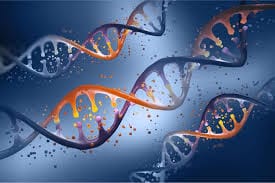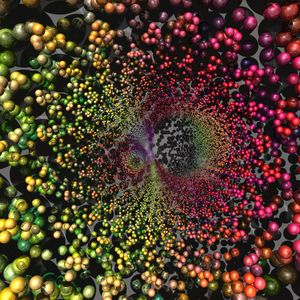Your Genes Aren’t Broken—They’re Asleep: A Patient’s Guide to Marc Malone’s Triune Restoration
Introduction: Wake Up Your Sleeping Genes
What if the reason your body isn’t healing isn’t because your genes are broken—but because they’re simply asleep? Imagine your DNA as a library filled with books your cells desperately need—but locked behind glass cases. For many chronic illnesses, from certain cancers to autoimmune disorders, this is exactly what’s happening. Marc Malone’s Triune Restoration Framework offers a roadmap to gently awaken those sleeping genes, allowing your body to repair itself naturally, safely, and without genetic editing. This isn’t science fiction—it’s cutting-edge epigenetic science explained in human words.
Some illnesses aren’t caused by “broken” genes—they’re caused by silenced ones. Marc Malone’s Triune Restoration Framework aims to re-awaken these genes by:
- Easing a stressed growth signal (PI3K) while preserving repair signals (mTOR).
- Loosening the protein “locks” on DNA (SIN3/HDAC complexes).
- Resetting cell metabolism with alpha-ketoglutarate (AKG) to enable repair.
This isn’t gene editing—it’s gene re-expression. Early claims are bold, and evidence is emerging. Always discuss with your clinician before considering new approaches.
What This Really Means (In Human Words)
Think of your DNA as a vast library. In many chronic conditions, the books you need are there—but locked behind glass. Triune Restoration tries to open that glass and let your body read and repair its own genetic instructions.
- Stop the panic, start the repair
Cells under stress often prioritize growth and survival over repair. By dialing down PI3K, Malone’s system allows the cell to switch from disease-propagating panic to active repair—without shutting off mTOR, the cell’s repair engine.- Reference: PubMed Central
- Unlock the DNA library
Proteins like SIN3/HDAC can lock genes in a silent state. Malone’s approach “cracks open the glass case,” letting repair machinery access DNA and RNA that have been repressed for years.- Reference: Nature
- Refuel the repair machinery
Alpha-ketoglutarate (AKG) supports the enzymes that remove chemical repressive marks on DNA and histones—effectively waking sleeping genes and promoting a healthy cellular environment.- Reference: BioMed Central
Why Patients Should Care
If you or a loved one struggles with conditions linked to gene silencing—like certain cancers, neurodegenerative diseases, autoimmune disorders, infertility, or developmental disorders—then a non-toxic, non-editing approach to gene re-expression is compelling.
Early reports, including re-expression of estrogen and progesterone receptors in refractory cancer cases, suggest the potential for meaningful clinical impact. More rigorous, independent trials are underway, but the mechanistic rationale is strong.
- Reference: Airmid Biogenetics
- Reference: ResearchGate
Questions to Ask Your Clinician
- Could my condition involve epigenetic repression rather than a permanent DNA mutation?
- What biomarkers would show gene re-expression (e.g., receptor status, RNA levels)?
- How would we monitor safety and benefit (labs, imaging, quality-of-life)?
- Are there contraindications with my current medications?
What You Need to Know
- Evidence is early: Most data are case-level reports or mechanistic studies.
- Complex biology: PI3K/mTOR pathways and chromatin regulation vary between individuals.
- Not a cure-all: This is an emerging approach, not a replacement for standard care.
Medical Disclaimer: Informational only; not a diagnosis or treatment plan. Always consult a licensed healthcare provider before making changes.
Conclusion: Take Control Without Breaking Your DNA
The story of your health isn’t written in unchangeable code—it’s a dynamic library of possibilities. Triune Restoration shows that even genes that have “gone silent” can be awakened, giving your body the chance to repair itself from within. While the science is still evolving, understanding the mechanisms empowers you to ask better questions, partner with your clinician, and explore emerging therapies safely. Your genes aren’t broken—they’re waiting for you to wake them.
References
- PubMed Central – PI3K/mTOR pathways
- Nature – Chromatin and gene regulation
- BioMed Central – AKG and metabolic support
- Airmid Biogenetics – Case reports and mechanistic insights
- ResearchGate – Independent research on epigenetic re-expression



